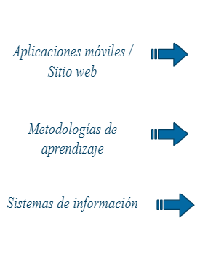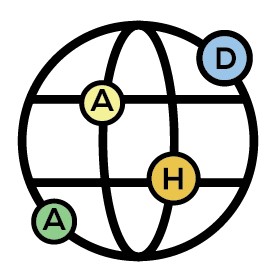Possibilities of digital humanities in citizen science projects in Brazil and Portugal
DOI:
https://doi.org/10.24215/27187470e053Keywords:
Citizen Science, Open Science, Digital Humanities, Information and Communication TechnologiesAbstract
In the digital humanities, transdisciplinarity points to new methods, devices and research associated with the digital in the Humanities. This study analyzes social participation in scientific projects, a bias advocated by Citizen Science. The methodological procedures included the study of Citizen Science projects in Brazil and Portugal in the field of humanities. The Citizen Science digital platforms of these countries were used, in addition to the mapping of projects carried out by the Portuguese Citizen Science Network. The objective was to verify the forms of social participation provided by these projects, mediated by digital technologies. It was concluded that most of the initiatives are guided by collaborative, democratic and educational principles. In addition, the technologies used by the projects connect citizen scientists and researchers, which favors the realization of scientific processes and social integration through the process of co-creation of solutions.
Downloads
References
Albagli, S. (2015). Ciência aberta em questão. En S. Albagli, M. L. Maciel y A. H. Abdo (Orgs.), Ciência aberta, questões abertas (pp. 9-25). IBICT, UNIRIO. https://livroaberto.ibict.br/handle/1/1060
Albagli, S., Clinio, A. y Raychtock, S. (2014). Ciência Aberta: correntes interpretativas e tipos de ação. Liinc em Revista, 10(2), 434-450.
https://revista.ibict.br/liinc/article/view/3593
Albagli, S., Py, H. y Iwana, A.Y. (2020). Geovisualização de dados e ciência aberta e cidadã - a experiência da Plataforma LindaGeo. Digital Humanities Quarterly, 14(2). http://www.digitalhumanities.org/dhq/vol/14/2/000452/000452.html
Bonney, R., Ballard, H., Jorda, R., Mccallie, E., Phillips, T.,Shirk, J. y Wilderman, C. C. (2009). Public Participation in Scientific Research:
Defining the field and assessing its potential for informal science education. Inquiry Group Report. https://eric.ed.gov/?id=ED519688
European Citizen Science Association. (2015). Dez princípios da ciência cidadã. ECSA. https://zenodo.org/records/5127534
Fundación Ciencia Ciudadana. (2017). Guía para conocer la ciencia ciudadana. Ciencia Ciudadana. https://cienciaciudadana.cl/descarga-la-guia-para-conocer-la-ciencia-ciudadana/
Haklay, M. (2013). Citizen science and volunteered geographic information: moverview and typology of participation. En D.Z SuiSui, S. Elwood, y M.F. Goodschild (Eds.), Crowdsourcing geographic knowledge: Volunteered geographic information (VGI) in theory and practice (pp. 105-122). Springer.
Kirschenbaum, M. (2012). What is digital humanities and what’s it doing in English departments? En M. K. Gold, (Ed.), Debates in Digital Humanities. University of Minnesota Press.
Minayo, M. C. S. (2007). O desafio do conhecimento: pesquisa qualitativa em saúde. HUCITEC.
Moura, M. A. (2019). Ciência da Informação e humanidades digitais: mediações, agência e compartilhamento de saberes. Perspectivas em Ciência da Informação, 24, 57-69. https://doi.org/10.1590/1981-5344/3893
Parra, H. Z. M. (2015). Ciência Cidadã: modos de participação e ativismo informacional. En S. Albagli, M. L. Maciel y A. H. Abdo (Orgs.), Ciência aberta, questões abertas (pp. 121-142). IBICT, UNIRIO. https://livroaberto.ibict.br/handle/1/1060
Pimenta, R. M. (2016). Os objetos técnicos e seus papéis no horizonte das humanidades digitais: um caso para a ciência da informação. Revista Conhecimento em Ação, 1(2), 20-33. https://revistas.ufrj.br/index.php/rca/article/view/20
Rollo, M. F. (2020). Desafios e responsabilidades das humanidades digitais: preservar a memória, valorizar o patrimônio, promover e disseminar o conhecimento. O programa Memória para Todos. Estudos Históricos Rio de Janeiro, 33(69), 20-44. https://periodicos.fgv.br/reh/article/view/80771
Secretaria de Educação Profissional e Tecnológica do Brasil. (2022). O “Aprender Fazendo” da Rede Federal de Educação Profissional Científica e Tecnológica: manual maker. MEC. https://www.ifpb.edu.br/sinergia/lampiao-maker/legislacao-1/manual-maker-v4-1.pdf
Shirk J. L., Ballard, H. L., Wilderman, C. C., Phillips, T., Wiggins, A., Jordan, R., Mccallie, E., Minarchek, M., Lewenstien, B. V., Krasny, M. E. y Bonney, R. (2012). Public participation in scientific research: A framework for deliberate design. Ecology and Society, 17(2), 29. https://doi.org/10.5751/ES-04705-170229
Silva, F. C. C. y Silveira, L. (2019). O ecossistema da Ciência Aberta. Transinformação, 31, e190001. http://dx.doi.org/10.1590/2318-0889201931e190001
Vohland, K., Land-Zandstra, A., Ceccaroni, L., Lemmens, R., Perelló, J., Ponti, M., Samson, R. y Wagenknecht, K. (2021). The Science of Citizen Science. Springer. https://doi. org/10.1007/978-3-030-58278-4
Wiggins, A. y Crowston, K. (2011). From conservation to crowdsourcing: A typology of citizen science. Proceedings of the 44th Annual Hawaii International Conference on Systems Sciences. IEEE http://dx.doi.org/10.1109/HICSS.2011.207

Downloads
Published
How to Cite
Issue
Section
License
Copyright (c) 2023 Amanda Santos Witt, Dr. Fabiano Couto Corrêa da Silva

This work is licensed under a Creative Commons Attribution-ShareAlike 4.0 International License.
Los autores que publican en esta revista están de acuerdo con los siguientes términos:
- Los artículos publicados en la revista se encuentran disponibles en acceso abierto.
- Los autores conservan los derechos de autor y garantizan a la revista el derecho de ser la primera publicación del trabajo al igual que licenciarlo bajo una Licencia Creative Commons Atribución-CompartirIgual 4.0 Internacional (CC BY-SA 4.0), que permite copiar y redistribuir el material en cualquier medio o formato y remezclar, transformar y construir a partir del material bajo los siguientes términos: debe dar crédito de manera adecuada, brindar un enlace a la licencia, e indicar si se han realizado cambios.
- Los autores pueden depositar el trabajo en un repositorio de preprints, postprints, establecer por separado acuerdos adicionales para la distribución no exclusiva de la versión de la obra publicada en la revista (por ejemplo, situarlo en un repositorio institucional o publicarlo en un libro), con un reconocimiento de su publicación inicial en esta revista.
- Se alienta a los/as autores/as a realizar el depósito de datos en SEDICI, o en cualquier otro repositorio de datos de investigación (como Zenodo, donde la AAHD ha creado un repositorio temático para HUMANIDADES DIGITALES), de manera previa a realizar el envío de la contribución a la revista. De este modo, al remitir el artículo solo se deberá indicar la URL donde se encuentran los datos de investigación.

























